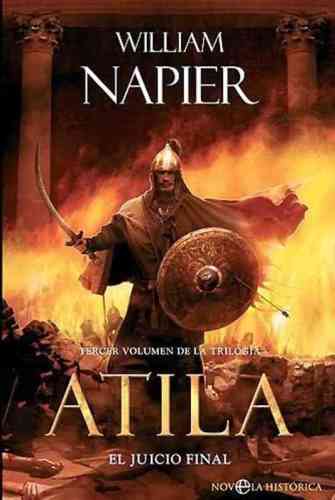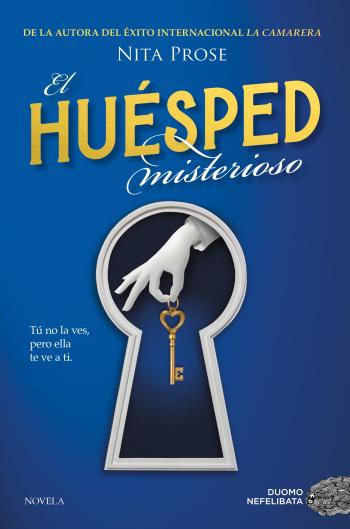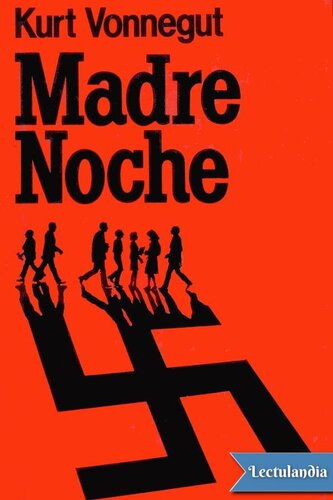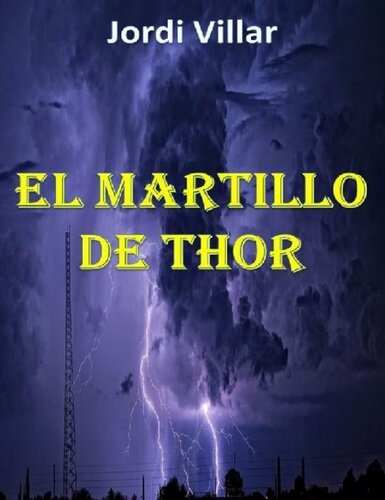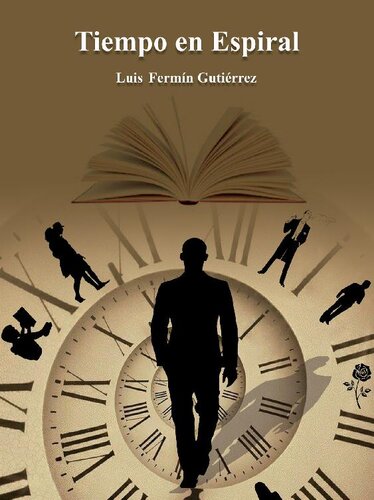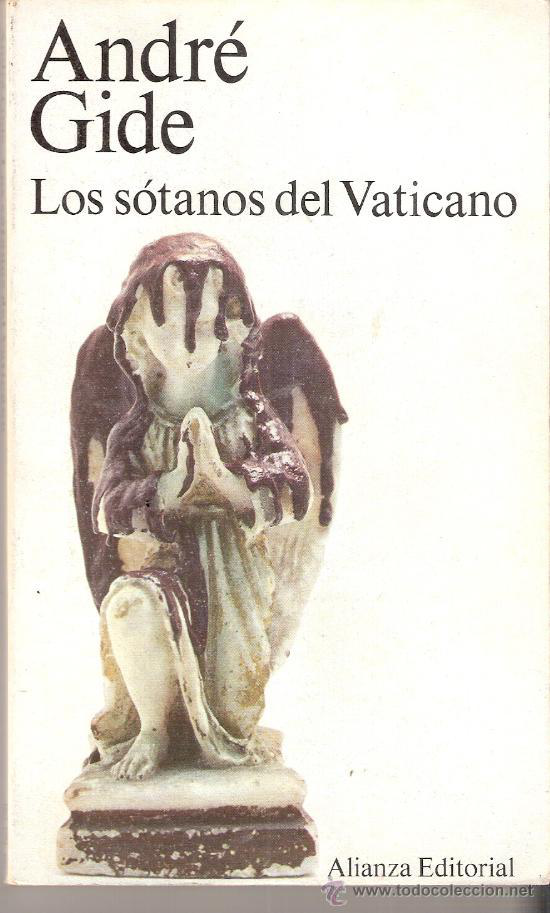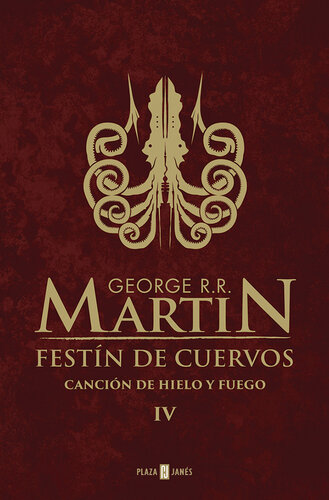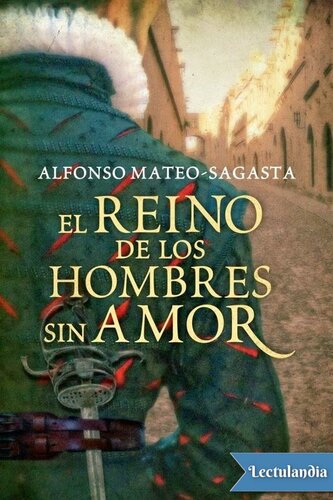oleebook.com
Un día en la vida de Abed Salama de Nathan Thrall
de Nathan Thrall - Género: Ficcion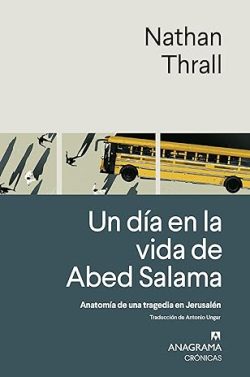
Sinopsis
Premio Pulitzer 2024 en la categoría de no ficción. Un retrato desgarrador de la vida diaria de la población palestina bajo la ocupación israelí. El 16 de febrero de 2012 se produjo un accidente en el que se vio implicado un autobús escolar que llevaba a un grupo de niños de excursión. Un hecho trágico. Pero el lugar en el que sucedió añadió a la tragedia una dimensión kafkiana, un insoportable grado de sinrazón. El accidente tuvo lugar en una carretera de los alrededores de Jerusalén, y los niños que viajaban en el autobús eran palestinos. Uno de ellos, de cinco años, se llamaba Milad Salama. Su padre, Abed Salama, es el protagonista de este contundente y conmovedor reportaje. Alertado de lo ocurrido, se dirigió rápidamente al lugar del accidente y empezó a buscar información sobre su hijo. ¿Estaba vivo? ¿A qué hospital lo habían trasladado? Sin embargo, ser palestino en esa parte del mundo significa estar sometido a controles del ejército israelí, trámites y obstáculos burocráticos, tener nulo derecho a recibir información precisa y ágil Junto a él, otros personajes palestinos y judíos que vivieron de cerca el accidente y la evacuación de los heridos componen un fresco estremecedor. Una historia particular sirve para explicar o al menos tratar de entender la historia en mayúsculas. Y para denunciar una situación injusta.
Libros Recomendados - Relacionados
Reseñas Varias sobre este libro
I requested this ARC after seeing Masha Gessen's interview with Nathan Thrall. In their introductory paragraph, Gessen speaks of the "intractable narratives" of Israel/Palestine; Thrall can't make those narratives any more tractable but he does illuminate them. I believed, until I read this book, that I had a reasonably clear understanding of the conditions of Palestinian life under occupation. I did not.
The day in A Day in the Life (I'm sure the echo of Ivan Denisovich is intentional) is the one in which Salama's five-year-old son, Milad, was killed in a school-bus accident. I say "accident," and the proximate cause was indeed accidental -- the driver of an 18-wheeler, speeding on a wet, narrow road, smashed into the bus -- but never was any accident, or its aftermath, so overdetermined by the historical conditions under which it took place. Everything from the road conditions, to the age of the school bus, to the route the bus had to take, to, most painfully of all, the long delay before ambulances and firefighters arrived, and the system of permits and checkpoints that prevented private cars from taking burned children to the best hospitals (which were, of course, not in the parts of the Occupied Territories where Palestinians live) was a function of -- well, "settler colonialism" is almost too abstract a term. Some Israeli middle-schoolers responded to news reports of the children's injuries and deaths with glee. On social media. Under their own names. Thrall quotes an Israeli -- a member of a haredi organization that collects the bodies of the dead for burial -- who is not unsympathetic to the bereaved parents but who says that of course he isn't as upset by the deaths of Palestinian children as he would be by the deaths of Jewish children. Any Jew who says otherwise, this man claims, must be lying.
I don't believe it for a minute, but that hardly matters; what matters is that anyone can say such a thing with no apparent shame. What matters is that an entire country has been organized in such a way as to make the worst days of so many people's lives inevitable. Where does such a cycle of dehumanization and vengeance end? Does it ever?
Many thanks to NetGalley and Henry Holt/Metropolitan Books for the ARC of this book.10-stars arc grief ...more72 s6 comments Traci Thomas684 11.8k
Overall this book is really good. The story of Abed Salama is so sad. The title led me to believe the book would be focused on one day, but instead it attempts to cover the last 50+ years of Palestinian and Israeli relations (and doesn't do it in a way that holds true to the one day constraint).The writing is great and the book is well researched. I found this book to have a lot of potential and be readable but in the end to be lacking a clear editorial structure. It felt an article that was turned into a book without having thought about how that transition would be executed.60 s3 comments Shishuraj48
Heart wrenching book. I had placed a hold on it from the library a while ago, but it arrived on October 14th, only a few days after Israel had begun carpet bombing Gaza in retaliation to the Hamas revolt on Oct 7. In the beginning of the book, the author paints a picture of Palestinians living, not just surviving. Of course doing that is hard with the illegal Israeli occupation constantly affecting their lives in multiple ways. It was still refreshing to read however. The book is centered on a tragedy though, and reading about it is infuriating, and the fact that nothing has changed since, in fact it may have gotten worse, is incredibly depressing.
P.S. the top of this book on Goodreads are such trash. Yall should stop reading imo.44 s4 comments Megan284 29
Quite short in length, but incredibly powerful in its telling.
I feel A Day in the Life of Abed Salama is a bit of a misnomer, as not only do the different chapters cover different time periods and phrases of the Israeli-Palestinian conflict, but there are a lot more individual characters (and perspectives) as well.
At times, I admittedly had a bit of trouble keeping track of all of the different characters, their backstories, and relations/relationships to one another.
However, all of the animosity, racism, entitlement, neglect, and abuse toward Palestinians does reach its breaking point on the day of the bus crash, when you learn just how easily this tragedy could have been prevented (and the even more sinister question lurking beneath the surface - did Israeli top officials intentionally allow this to happen?)
Going off the reactions of the Israeli youth (laughing and saying from the bottom of their hearts, they felt absolutely ecstatic upon hearing the news of the accident - one in which five 4-5 year old Kindergartners died needlessly) as well as the lack of Israeli authorities to launch any official investigation into culpability, its not exactly an unreasonable question to ask.
Sure, there may be extremists on both sides, but lets please stop kidding ourselves as to whom the actual victims are; that there are no differences between the oppressors and the oppressed. Given the time and Americas unflinching support for Israel, books this should be required reading for K-12 schools so that people can finally start to learn both sides of the story, rather than Zionist propaganda.
Five stars due to its necessity. autobiography-biography history international-relations ...more21 s1 comment Stitching Ghost902 171
It's a great book if you books that thoroughly resist the temptation to idealize the victims and make them into saints. The only thing that I really struggled with is that we got a fair bit about a lot of the people involved and being terrible with names there's probably a couple people whose stories got tangled up in my brain. There's a lot of traumatic stuff in there so do approach with caution if you're in a fragile place. 17 s Ieva Andriuskeviciene233 121
Labai bijojau imtis dadartiniam politiniam kontekste, bet gavosi vienas geriausi? pasirinkim?. Ji ileista visikai naujai, prie dabartinius ?vykius
Knygos ais, per liet?, 2012 vasario 16?, apsivert?s autobusas su priva?ios mokyklos vaikais veamais ? ekskursij?. Avarija sluoksnis po sluoksnio atskleidia istorij?, Izeraelio-Palestinos santyki? tragikum?. Kelias kuriuo naudojosi Palestinie?iai, bet priklauso Izraeliui. Gelb?tojai i West banko utruko kelias valandas d?l patikros post?. Izraelio greitosios kurios buvo keli? minu?i? atstumu, bet neskub?jo vaiuoti d?l saugumo nes teritorija sud?tinga
Knyga ne groin?, visi veik?jai tikri (kai kuriems pakeisti vardai), bet strukt?ra kaip gero romano
Abed Salama, kurio s?nus buvo autobuse, vain?ja per visas liginines ir tikisi surasti j? gyv?. ? Jeruzal?s teritorij? patekti negali nes tiesiog neturi tinkamo leidimo
?ia sutinkame ?vairius su tragedija susietus mones. I abiej? barikad? pusi?, tiek ydus tiek palestinie?ius. Su savo gyvenimo istorijom ir tragedijom
Huda, gydytoja atvaiavusi gelb?ti auk?. Jos istorija nuo Maskvos iki Budapeto kur augindama 3 maame?ius vaikus, imokus kalb?, baig? medicinos studijas ir savo namuose priimin?jo diplomatus. Tuo tarpu vyras sak?, kad mokslai jos reikalas ir jei ji nori mokintis tai gali daryt savo laiku, kai vaikai sui?r?ti, valgyt padaryta ir namai var?s.
Vienoje vietoje kakiek keliai susikerta su ?vykiais apraomais Apeirogone, nes Hudos s?nus m?to akmenis ? karius ir jo draug? nuauna Izraelio kariai.
Sutinkame vairuotoj? kuris neteko koj? ir vis? likus? gyvenim? kankinosi naktimis sapnuodamas komarus ir b?go i degan?io autobuso
Ibrahim ir Saar, vis? gyvenime lik? draugais nors abu yra prieing? vyriausybi? pareig?nai, suprat?, kad daugiausia pasiekti gali darant paslaugas vienas kitam
Dany Tirza, architektas pastat?s West banko sien? tikintis, kad taika tarp yd? ir palestinie?i? visai netoli ir pasiekiama
Suinojau daug naujo, praktikai nieko nenumaniau apie Mizrahi ydus, kilusius i Centrin?s ir Vakarin?s Azijos, Arab? ali?. Skirtingai nei Europos ydai, jie turintys prastesn? isilavinim?, maiau turto buvo diskriminuojami. Apgyvendinti savotikuose getuose kur vyravo nusikaltimai, narkotikai. Jaut?si visikai apgauti nes emigravo ? paad?t? em?, o teko kovot u viet? po saule
Taip pat, nelabai inojau apie Geva Binyamin (kitaip pavdinam? Adam) yd? gyvenviet? West banko teritorijoje, jos susik?rim?
Kufr Aqab, ryt? Jeruzal?s biurokratin? skyl?, rajonas atkirstas siena ir pergr?stas gyventoj? kurie arba neigali gyventi Jeruzal?je, bet ten dirba, turi leidimus. Arba vienas poros nari? neturi m?lyno ID leidian?io kirsti sien? laisvai. Dar vadinama meil?s kaimynyste nes tai vienintel? vieta kur gali gyventi palestinie?iai turintys skirtingus leidimus. Jais nesir?pina nei Palestinos valdia nei Izraelio, Ten auga nelegal?s aukti pastatai, tr?ksta vandens ir elektros, nusikaltimai. Isikraus?ius ? West bank, prarasi savo m?lyn?j? ID. Toks udaras ratas nes gyventojai moka mokes?ius, bet nieko u tai negauna. Nei mokykl? nei iukli? iveimo nei keli? tiesiam? nei ligonini?. Kaimas kuris tur?jo tik 10000 gyventoj?, pavirto ? didmiest? su 150000
Li?dniausia buvo Nancy istorija, jauna mama kurios s?nui uvus autobue, vyras ir visa vyro eima kaltino j? nes b?tent ji ileido vaik? vaiuoti su mokykla. Visaip j? kankino u bausm?
Knyga iauri, daug skausmo, pvz liepsnojant autobusui vaikai tyl?jo nes galvojo, kad ?ia pragaras
Labai sunku b?ti empatikam Abed kai jis svajoja apie SSR universitetus. I ididumo paniekina savo pirm?j? tikr? meil? ir ved?s kit? moter?, kuri niekuo jam nenusikalto j? baudia abejingumu. Ir vat jam reikia poky?i? tai nusprendia antr? mon? pasiimti, nors tada buvo Jordanijos ?statymai ir toks veiksmas legalus, bet niekas tuo legalumu nesinaudojo. Ir visa gimin? labai prietaravo
Sako jis:
Maybe he deserved to be punished for his mistake, but not with a life sentence, he reasoned.
O va mona kuri realiai buvo ideali, tai dzin. Nuspelno gyvenimo bausm?s u niek?
Dar kai jam nenorint (?!!!) pirma mona pastoja jis baisiai pasipiktina
It takes no more than a sneeze to get that woman pregnant
Paskui susiad?jo su mergaite kuri gyeni Izraelio teritorijoje, pamelav?s, kad isiskyr?. Ir vat jam ta Jameela eima atrod? per daug ydiska, manierizmai ir kult?ra. Met?, neved?. Nors m?lynas pasas, leidiantis lengvai kirsti Izraelio teritorij?, labai viliojo. Pirmai monai pasakant, kad ved? antr? mona, susikvie?ia eim? visa kartu. Kad scenos neikelt?
Labai patiko, bijojau didelio alikumo kur akis nor?sis vartyt, kokie vieni geri, o kiti labai blogi. Bet kaip tik knyga turi t? balans?, padeda suprasti t? beviltik? udar? rat?. Kai norint apsisaugoti nuo terorizmo, pastatoma siena, taip tik dar labiau uatrinant ir t? pat? terorizma. Kritikuojamos abi pus?s, abi valdios. N?ra juoda/balta naratyvas
Ar autorius si?lo atsakymus ir ieitis? Tikrai ne, tai paprast? moni? gyvenimai, mogikumo paiekos tragedijos fone. Ar avarijos buvo galima ivengti? Tikrai taip, autobusas buvo netinkamas vaiuoti per liet?, gelb?tojai tiesiog nevaiavo nes niekas nenor?jo kitis.
Labai rekomenduoju!17 s Leigh KramerAuthor 1 book1,292
An important eye-opening read. In February 2012, a semi truck collided with a school bus full of Palestinian kindergarteners in the fringes of Jerusalem. There was no help from Israeli police, firefighters, or soldiers despite pleas as the bus burned. Palestinian drivers on the road worked to get the children and teachers out instead. The children were taken to different hospitals in Jerusalem and the West Bank, with no record of who was taken where and no central figure helping the parents find them.
It is a harrowing account as we go from the kids excitement about a field trip to their parents terror over trying to not only figure out what hospital their child might be at but whether they can cross a checkpoint to get to them. The book starts with Abed Salamas son Milad getting ready for the day and then everyone learning about the accident. Then the author zooms out to share about Abeds life, as well as the history of other parents and some of the first responders.
Through it all, Palestinian parents await the fate of their children and navigate a more difficult hospital system than necessary. In the aftermath, Abed finally finds his son and learns Milad was one of the children who died, burned so badly he could only be identified by DNA test. The stories of other children and families are just as heartbreaking, even for the ones who survived the traumatic crash.
This highlights the systemic issues that led to an unnecessary tragedy, one that the Israeli government has never taken responsibility for. There is no excuse for the callousness of those who did not intervene sooner or at all. It unfortunately explains so much about current events, that not even children are safe or worthy of protection and compassion.
The Stacks Podcast had a fantastic interview with the author, who is a Jewish American living in Israel, which is how I learned about this book. Its well worth a listen.
Content notes: PTSD, mass casualty accident involving a school bus and semi trailer, death of six children and one teacher, severe burns, amputation, missing and injured children, children shot by Israeli Border Police and soldiers, arrest and incarceration of children, torture of prisoners (including children), intimate partner violence (including mans family encouraging him to beat his wife and hire someone to kill her), substance abuse, past suicide bombings, murder, massacre, gun violence, bombing, stabbing, physical assault, parents arranged marriage between their 17 year old daughter and a 29 year old man, forced family separation (abduction of refugee Mizrahi Jewish infants and children who were then adopted by Ashkenazi Jews), police corruption and violence, military corruption and violence, abuse of power, medical abuse (border police wont let patients pass to go to the hospital), incarceration, solitary confinement, inhumane treatment of prisoners, leukemia, Alzheimers, blood clot and severe heart failure (result of grief), racism, sexism, purity culture, verbal abuse, social media bullying (Israelis rejoicing in the deaths of Palestinian children), refugee camps, street harassment, cousin marriage, polygamy, divorce, pregnancy, ableist language, mentions of rape, reference to a mans friend who died by suicidefavorites grief-and-loss nonfiction13 s Álvaro CuriaAuthor 1 book376
Pensava que era uma obra de ficção com alguns factos históricos. Não me estava a convencer porque parecia demasiado impossível.
Descobrir que esta é uma obra de não ficção, um longo artigo jornalístico é devastador. Como é que nós chegámos aqui?
Para um entendimento do que se passa naquela zona do mundo, partindo da tragédia de uma família.
Há a versão portuguesa publicada pela Zigurate.12 s Katrisa367 12
I knew that this book was based on real events, but I didn't realize until the end of the book when I got to the author's note that this book is not a work of fiction and that all the characters are real just with a few name changes. That makes the story even more heartbreaking. I loved the way the book introduced characters and then gave background information about the Israel/Palestine conflict. This was a really powerful book for not being that long and I learned a lot. I teach kindergarten and I couldn't help but think that that bus was full of kids I teach. I cannot imagine the horror the parents had to go through navigating the convoluted system of IDs and checkpoints while trying to find if their child had survived or not. Excellent book.
Thank you to Netgalley and Macmillan audio for this audiobook for review purposes. All opinions are my ownnetgalley9 s Nada ElshabrawyAuthor 2 books8,778
a devastating story. fuck occupation. freepalestine.
--------------------------
There was no suggestion that Israels fund for accident victims should compensate the families of green ID holders, whose children were killed on a road controlled by Israel and patrolled by its police. No one argued that a single, badly maintained artery was insufficient for the north-south transit of Palestinians in the greater JerusalemRamallah area, or objected that the checkpoints were used to stem Palestinian movement and ease settler traffic at rush hour. No one noted that the absence of emergency services on one side of the separation wall was bound to lead to tragedy. No one said that the Palestinians in the area were neglected because the Jewish state aimed to reduce their presence in greater Jerusalem, the place most coveted by Israel. For these acts, no one was held to account.
audio english8 s Christina192 67 Read
I didnt finish this book so I wont give a rating. I stopped at 30% because it ended up taking too much time to building up to the main subject of the book.
It began with a brief account of the wreck and Abeds desire to find his son, then begins building the backstory of his life.
The backstory, before I stopped listening, consists of Abeds criminal life and his relationships with women. I didnt continue, not knowing how long this would last.
People who are interested in Muslim marriage customs and laws may be interested in this book. It just wasnt a good fit for me.
Thanks to Macmillian Audio, and Nathan Thrall for the ARC via NetGalley.dnf8 s2 comments June755 4
Palestinian Kindergartens are killed in a tragic bus accident and subsequent fire. In particular, Milad Salama seems to have foretold of his untimely demise.
The causes of this horrible accident are the convergence of geopolitical ideology, religious diversity, human greed, and carelessness.
And finally, the coup de gras... the reason that's as old as time itself: confiscating someone else's land and resources for your gratification!
It's horrible how people continue to treat each other the opposite of how they would want to be treated!
When deaths reach our families, we wrent our garments and weep, but no one honestly seems to apply the lessons learned consistently.6 s Michael Clark137 18
A Day in the Life of Abed Salama is a power book of narrative non-fiction, which effectively details the devastating personal impact of Israel's system of apartheid and dispossession on the Palestinian people in the West Bank. Thrall uses the personal histories and experiences of individuals to ground his narrative, illustrating the lived experiences of people. It's harrowing, but a critically important contribution and well worth the read. history-and-politics non-fiction7 s5 comments Britta BöhlerAuthor 8 books1,955
Read for the BTP / Quarterfinals Nonfiction. Rating to come after the judging has been finalized (end of May).01-2024-btp-nonfiction 2024 2024-1st-time ...more6 s Estelle Mack11 2
Simply heat-wrenching, but a must read; may the children of Israel & Palestine find a way to live together peacefully 6 s Tim317 290
The disparity between the Palestinians and Israelis is still hard for many to internalize. One is an occupier, the other is an occupied people. Those Palestinians inside Israel (not under direct control in the occupied territories) are 2nd class citizens in practice since the arrival of Zionism and legally since 2018. Those in the occupied territories, meaning The West Bank and Gaza have no rights. They are under the complete authority of the Israeli military in everything that matters. The present "war" is described by many reputable orgs as but an escalation in a genocide that's been ongoing - the desire to eliminate the Palestinians in whole or in part. The military occupation of the Palestinians is designed to make life miserable, to control and humiliate through every aspect of existance and to make the ordinary day tortorous with the ultimate desire to force Palestinians off the land through death, displacement or immigration. This has been going on since the founding of the State of Israel and prior.
This story - a true one - is written a novel by a Jewish American who masterfully shows all the little ways that these societies intersect to create layered problems and personalities. You have the Palestinian collaborators next to the freedom fighters alongside the peace minded Israelis and messianic settlers mixed in with diverse motivations and generational trauma around a singular tragic incident that might not have had to happen at all were it not for the Israeli military occupation and total control over Palestinian life.
It's an accident that might have happened anywhere, but it was the response and aftermath that showed the daily injustices of military occupation perhaps most in the indifference to the victims. It's the indifference towards the fate of the kids in the bus that caused many of them to die - a systemic indifference - and it's the same indifference we see from the people either in America or Israel towards what is currently happening to the Palestinians in both Gaza and now the West Bank that is allowing this to continue. That the indifference continutes today, when the extermination is at it's most severe stage is truly terrifying.
Imagine what is involved with Israeli occupation, prior to October 7, which many human rights orgs have described as one of if not the most brutal in recorded history. Someone arrives at your familial multi generational home one day puts a gun at your head and tells you to leave within an hour or they'll kill you. You leave to a refugee camp and these same soldiers now live in your home and restrict you from coming back to your old neighborhood. If you fight to get your land back they kill you. There's a stark illustration of the tragedy inolved here when one of the characters is sentenced to be held in a prison that is on his family's former land, now stolen by Israel (again true story all of this). Yet nothing happened before October 7 to precipitate the current horror if we're to believe our media.
Further, the daily injustices of being stopped at checkpoints, of complete Israeli impunity in the territories, of having all rules for your daily life made by the enemy and someone who wants you most of all to be gone or die, how can you wrap your head around living under such a system? How would this affect how you feel about that entity and how in the hell can we treat this as a "normal war" between two equal sides? There is an occupier and an occupied people. This book helps us understand what that actually means and a tiny bit of how it must feel in the raw emotions of a singular tragedy.palestine pulitzer5 s2 comments António Dias129 16
Uma história real do início ao fim, que me impressionou pelas razões imediatas, mas também por outras, mais estruturais, que eu não contava encontrar neste relato mas que o autor explana com grande detalhe e conhecimento de causa.
Um acidente com um autocarro que transporta crianças de uma escola palestiniana, a caminho de um parque infantil, que acontece numa estrada sob jurisdição israelita é o ponto de partida para conhecermos este drama, um drama humano em primeiro, mas também político, cultural, religioso...
A dinâmica infernal de uma região que nos é distante encontra-se descrita na perfeição por Nathan Thrall. As implicações políticas que a divisão territorial tem, com o muro, os postos de controlo e a segregação, no apoio (ou falta dele ou nas dificuldades causadas) prestado às vítimas do acidente forma o núcleo de uma história que põe a nu os dramas entre as facções da comunidade palestiniana, as tensões com Israel, as intifadas, o desrespeito por um povo de quem ninguém quer saber.
Contudo, o que mais me impressionou foi o cunho humano que o autor imprimiu a pessoas de uma comunidade cujos membros se perdem na indiferenciação noticiosa do nome colectivo: "palestinianos". São pessoas como nós, com as alegrias e desamores, discussões e vitórias, famílias e profissões, rotinas e celebrações.
Que sorte a nossa. Se outras razões não existissem para ler 'Um Dia na Vida de Abed Salama', a consciencialização da solidariedade que devemos a quem teve o azar de nascer no local e época errados, e a sorte que, por contraponto tivemos por nos ter calhado este pacífico cantinho à beira-mar, são motivos suficientes para abrirmos este tesouro.5 s Conceição Puga70 19
Um Dia na Vida da Abed Salama: Anatomia de uma Tragédia em Jerusalém, de Nathan Thrall, jornalista e escritor norte-americano residente em Jerusalém, conta a história de um homem, Abed, que procura o hospital para onde o seu filho, Milad, poderá ter sido levado depois de o autocarro onde seguia se ter incendiado a caminho de um dia feliz. Mas Abed não pode circular livremente em Jerusalém, porque não tem a cor certa no bilhete de identidade.
Este livro é um relato detalhado que ilustra, de forma comovente e perturbante, a profunda crueldade do conflito israelo-palestiniano.wishlist9 s1 comment Inesbirrento93 14
Apesar de andar absolutamente perturbada com o massacre que Israel está a perpetrar em Gaza - ou talvez por isso mesmo - não consegui "entrar" no livro. Também não gostei particularmente da escrita do autor. Enfim, muito diferente em estilo e emoção, mil vezes ler o palestiniano Mahmoud Darwish.4 s Elizabeth4
This book was interesting. I agree the other reviewers that the title felt misleading. I expected the book to be a deep dive into the day of the accident, and it wasnt. While it covered real people because so many were introduced it was hard to really bond with each person because each of them only had a small portion of the book devoted to them. I wished the book told us how other survivors of the crash were doing now.
Additionally, the book was written as nonfiction but I definitely noticed some biases/selective interpretations of history. For example, Deir Yassen, its well known that Israel built a psych hospital over the remains of the village, but the book claims that a Jewish village was built over the remains. I googled it, and the Jewish village in question was built in the early 1900s well before the massacre.
He also attributed the Second Intifada to Sharons visit to Haram Al Sharif but historians today discredit that and point to a variety of other factors and decisions that led to it.
These are pretty basic things, but it makes one then question the veracity/accuracy of the rest of the book. While I do not doubt the checkpoints, the oppression, the daily struggle of the Palestinians, it made me wonder what else the author might have changed or leaned on to prove his point/message/aim.
Im skeptical of any book that presents either group as wholly evil or good, and I felt that this nonfiction book had a clear bias. And some may wonder why that matters, but the truth of the situation is sad enough without giving into biases.
Additionally I cant help but wonder, if the author believes everything he wrote then why in the world is he still living in Jerusalem? 4 s Claire656 8
Of course I knew it would be a sad and hard read, both from the title and the interview on Democracy Now! of Abed Salama. And indeed it is. It is also a timely read with the Hamas attack and current excessive Israeli retribution. It provides background to the ongoing mistreatment of Palestinians that cumulatively exceeds the deaths in the recent Hamas attack. It provides examples of what it is to live in the West Bank, which in not exactly living in Gaza where instead of having trouble navigating around the Wall, Gazans are severely restricted from leaving at all.
The day in the title is the day of the kindergarteners' bus ride for an outing on poorly maintained roads in a very bad rainstorm and the resulting crash with a semi and fire in the bus. A large part of that story is told through the Salama family, but there are vignettes of other families and their reunions with rescued children and their losses. That narration extends beyond a day. But there are more excursions into biography of various participants, some with major roles, some with lesser roles. Some lead to discussions of evolution of the current situation, most notably the chapter on the development of the Wall.
The narration of the extended day is riveting; in the background sections I tended to get lost in the sheer number of people involved. But the forest was always visible as I perused the trees.
native-american-history non-fiction social-issues4 s Anna Vardanyan49 6
A gut wrenching book - but a supremely important one in todays unconscionable reality. 20244 s Gisela Slotnisky-Eskinazi20 1 follower
Poorly written and researched. I felt this author pretty much ignored the both side issues that is leading to so much hate and violence. His work looks searched from TikTok and social media! I just rolled my eyes when he wrote the part that Jews were never pushed out from Morocco
Autor del comentario:
=================================

